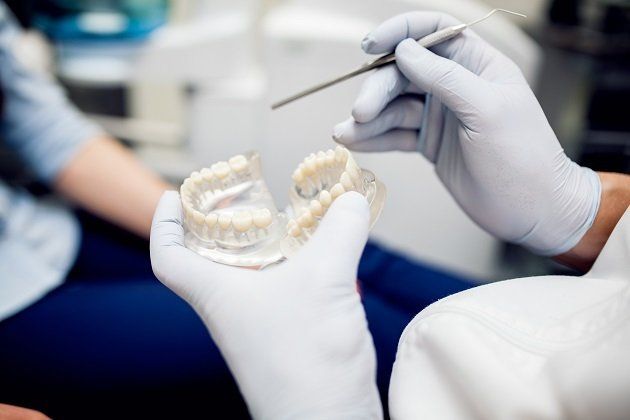Why Are Dental Crowns Recommended After A Root Canal?

A root canal is one of the best dental procedures to deal with extensive damage, such as tooth decay and rot. However, after the procedure, a tooth is usually vulnerable, and many dentists have used dental crowns to reinforce it further.
dental crowns act as a protective case, wrapping the tooth to allow it ample time to heal. They also help to reduce tooth sensitivity, which is the biggest concern, especially if you had to undergo a complete root canal procedure. Even so, dental crowns also help to shape up the tooth, giving it a distinctive look.
That’s not all, as you still need to know key reasons for a tooth crown after a root canal, whether a tooth weakens after the procedure, and whether dental crowns prevent tooth decay, which you will learn if you read on.
Why you Need Dental Crowns after a Root Canal Procedure
There are a lot of misconceptions surrounding root canal treatment, with some people seeing it as a brutal way of handling root decay. Some even fear that the underlying dental condition might resurface, and they’ll have to undergo the pain again. There is also the issue of tooth sensitivity and whether the tooth in question will be the same after the procedure.
That’s why Glenview dentists or Endodontists prefer adding dental crowns after a root canal for the following reasons:
Reduce Tooth Sensitivity
Tooth sensitivity is the biggest concern for many people after a root canal treatment. A sensitive tooth can make it hard for you to smile, eat, or drink anything hot or cold. It also takes a while for the sensitivity to subside, and not everyone has the patience to wait. Dental crowns help reduce this problem, as they protect the fragile parts of a tooth.
Prevent Infection
Tooth decay starts as a simple infection that you neglects. A tooth that is fresh from the root canal is usually vulnerable to infection, especially if you’re not keen on your oral hygiene. The dental crowns act as a protective shield, keeping any bacteria that might cause infection away from the tooth. Think of dental crowns as gloves keeping anything harmful away from the teeth.
Protection from Damage
Besides tooth decay, Bruxism is the primary cause of tooth damage. Although it’s not shared with everyone, extensive teeth clenching and grinding have always affected healthy teeth, let alone those that have undergone a root canal treatment. Dental crowns will help to shield teeth from the pressure of grinding and clenching, which has always been a culprit in tooth wear and tear.
Improve the Teeth’s Appearance
The last thing you need is for your tooth to lose its shape after a root canal procedure. However, dentists have noticed that adding dental crowns helps to maintain a tooth’s shape. The crowns also hold the tooth’s content together as they solidify, allowing you to have uniform teeth.
Does a Tooth get Weaker after a Root Canal Procedure?
A root canal might alter your teeth, but that doesn’t mean they get weaker. Contrary to the belief, the artificial enamel added to the tooth during the process is as solid and strong as the original content. However, tooth decay and infection are the primary cause of weaker teeth.
Depending on the damage extent, a dentist might be forced to remove huge amounts of dentin and enamel during the root canal procedure, leaving your tooth temporarily weakened. The chemicals used during the procedure might also weaken the tooth since they’re acidic in nature.
However, after removing all the affected parts of a tooth, a dentist will add artificial enamel to fill the gap. There are also cases where a metal post might be used to strengthen the tooth further. A dental crown is then placed over a treated tooth to protect it from infection and the bite force. If a dentist does great work, it’s possible to end up with even a much stronger tooth than before.
Do Dental Crowns Prevent Future Tooth Decay?
Teeth with crowns are as prone to the cavity as normal teeth. The most prone part of such a tooth is on the margin line, where the crown meets the tooth. If left for long, a plaque might form around the tooth, resulting in a cavity.
That’s why it’s important to schedule a dental appointment at least after six months to have your teeth checked properly.
Outro
Dental crowns are crucial after a root canal as they help to strengthen your tooth by keeping it safe from infection and protecting it from the bite force. They also help to maintain its shape and reduce tooth sensitivity. A tooth doesn’t get weaker after a root canal, and it’s also vulnerable to cavities even with a dental crown on.










